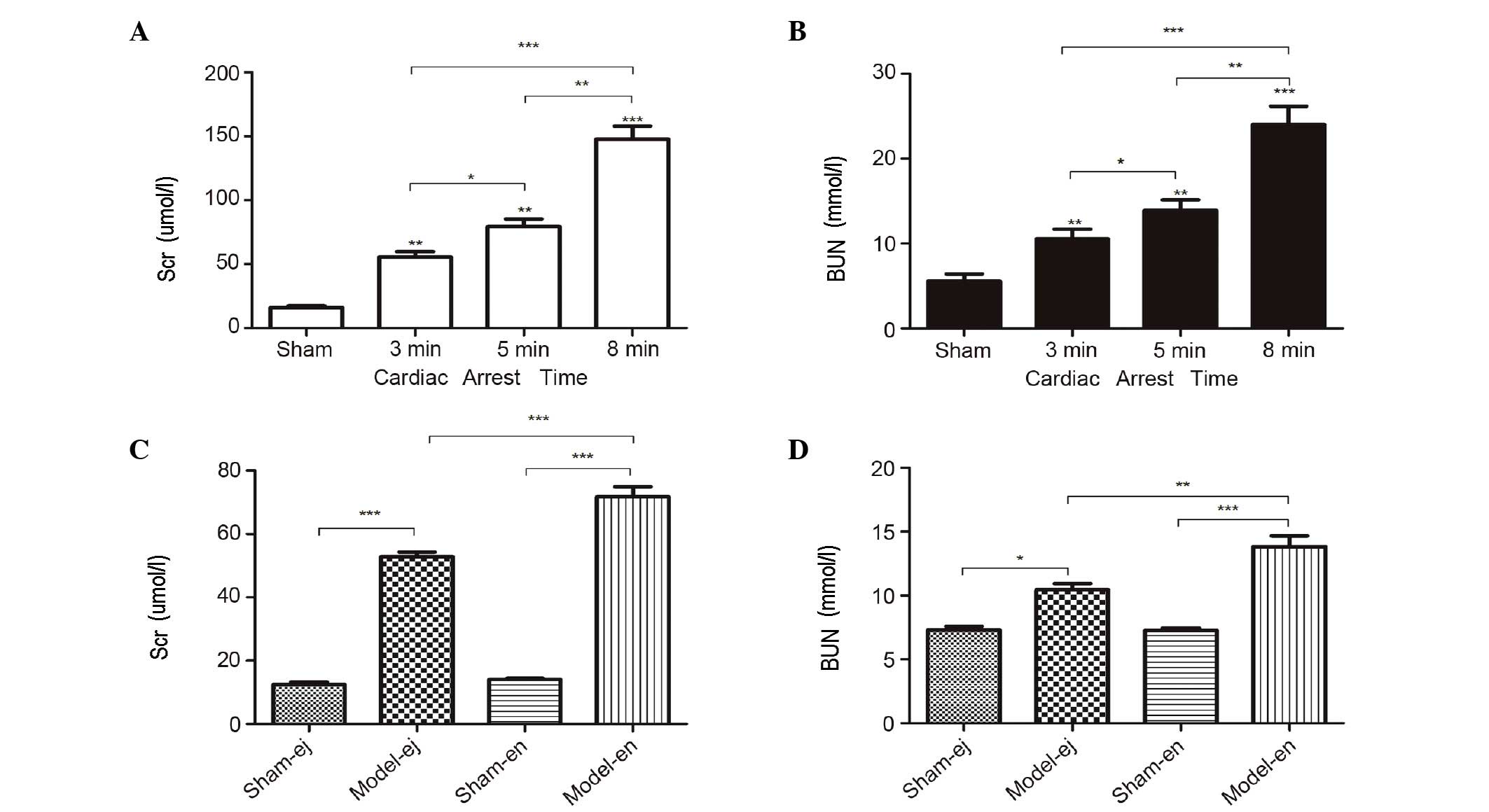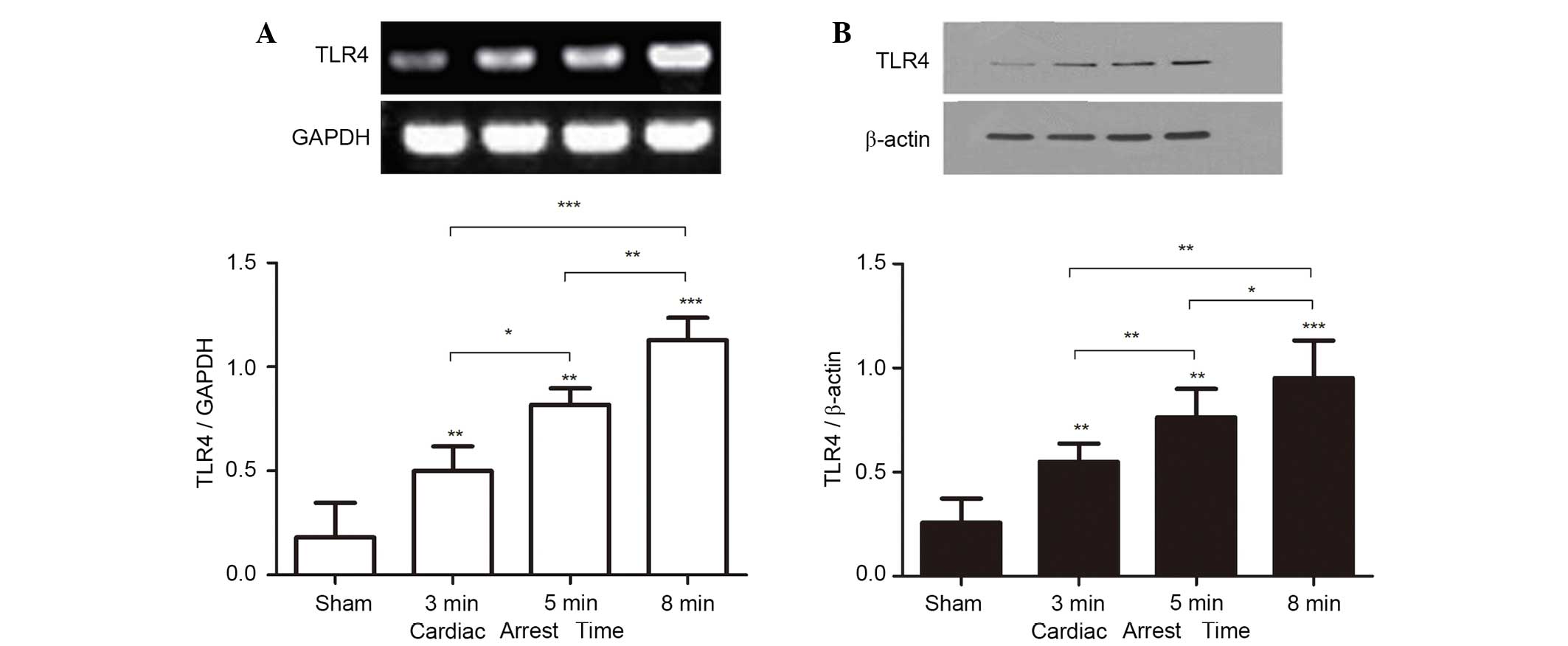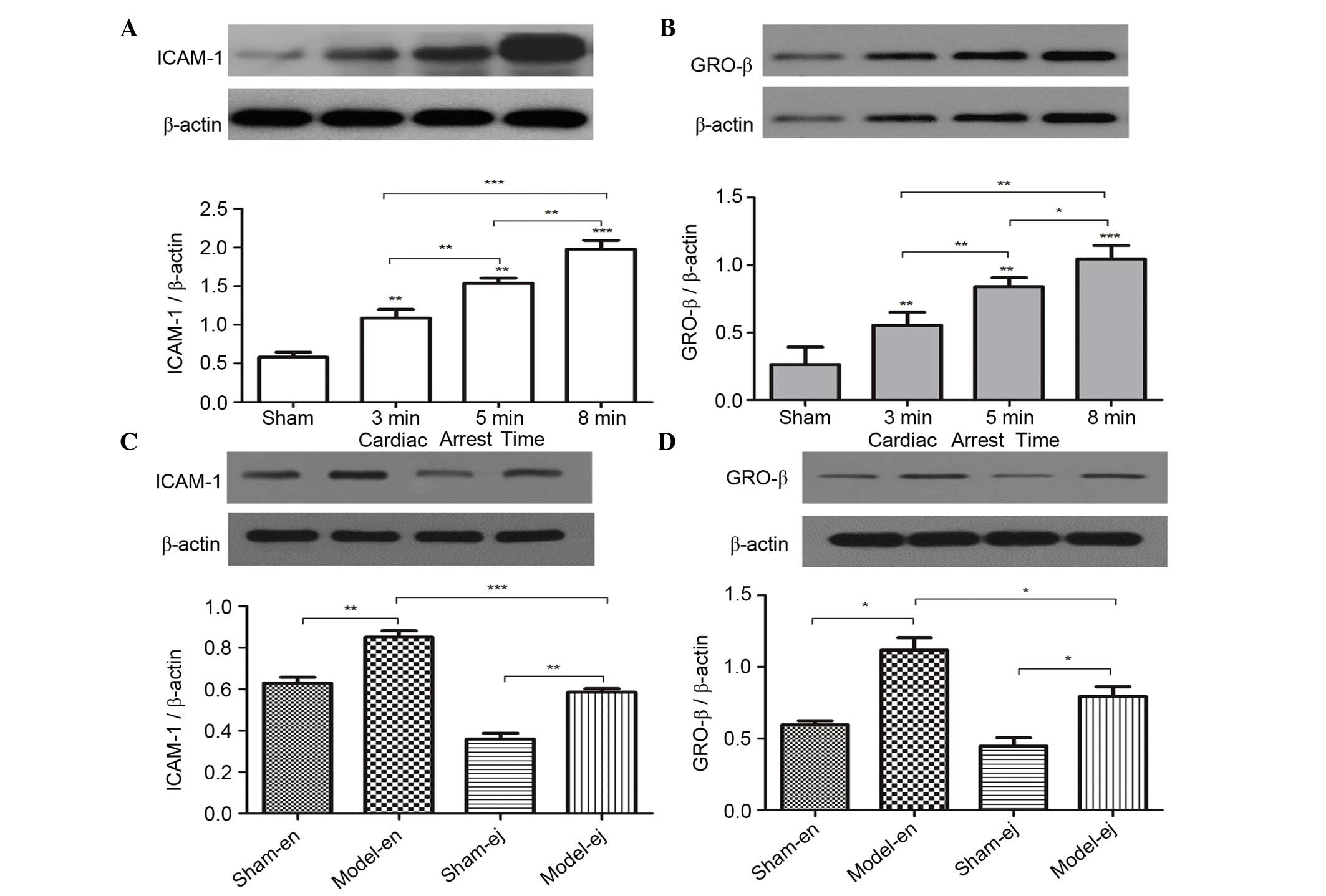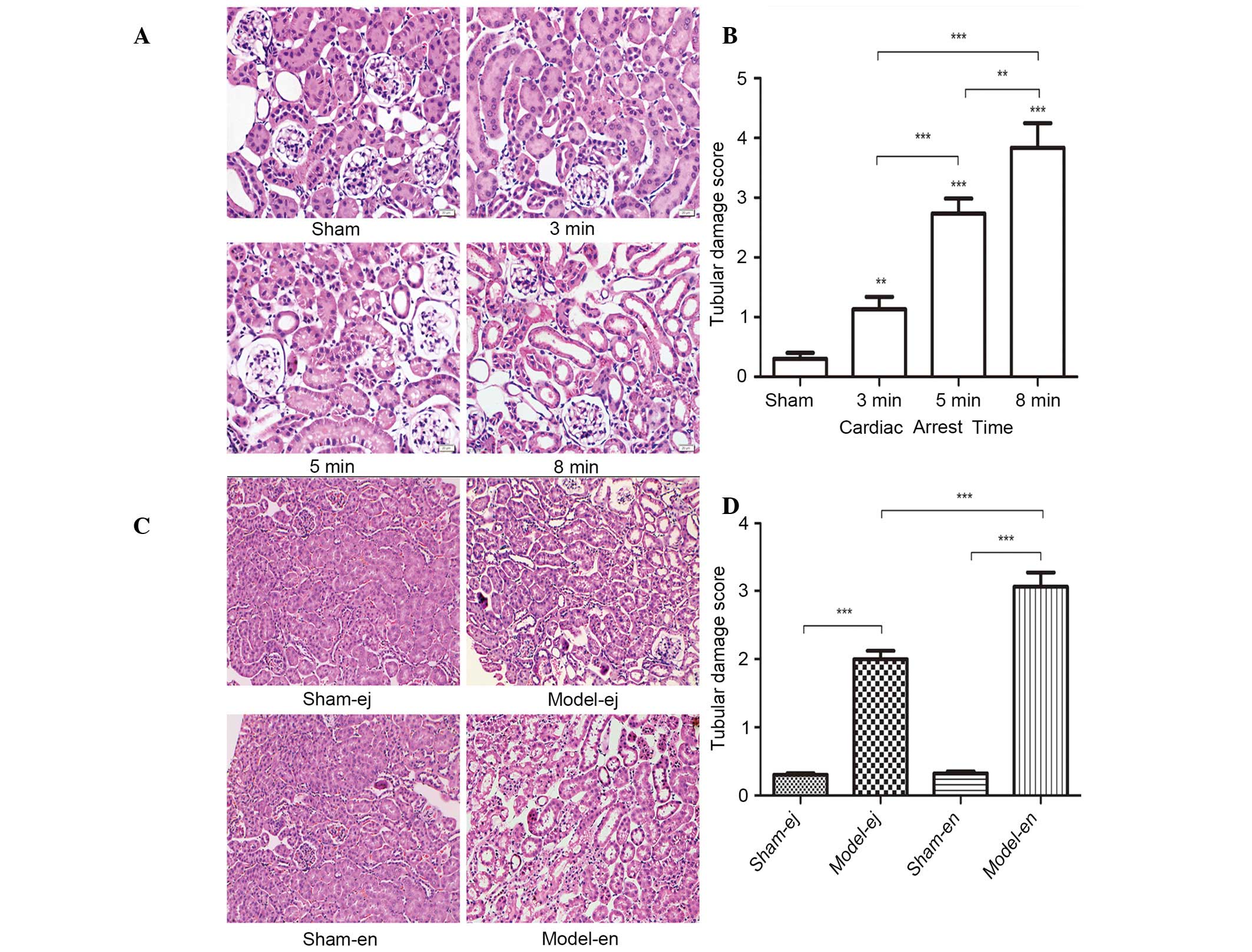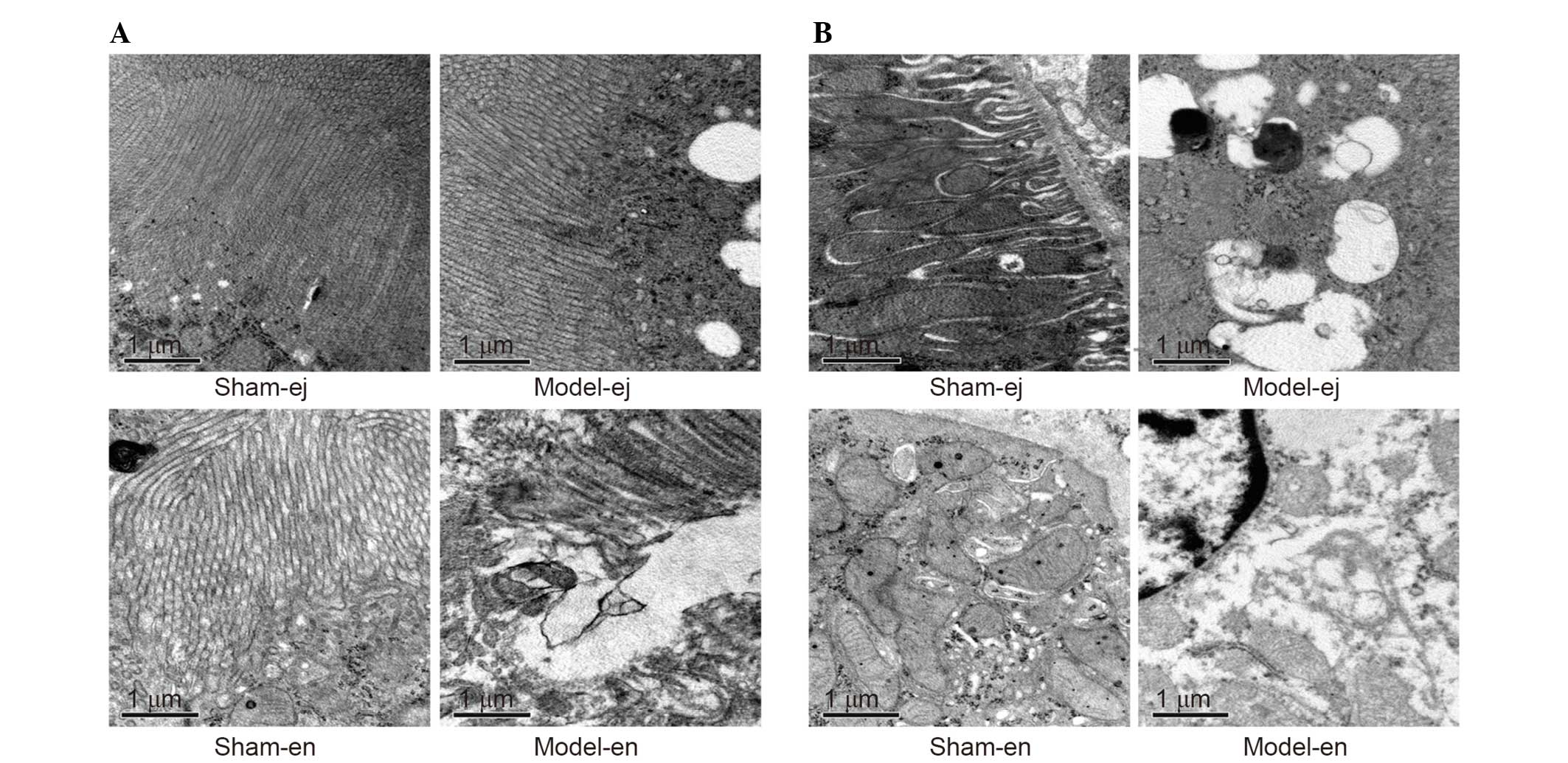|
1
|
Joannidis M, Druml W, Forni LG, Groeneveld
AB, Honore P, Oudemans-van Straaten HM, Ronco C, Schetz MR and
Woittiez AJ; Critical Care Nephrology Working Group of the European
Society of Intensive Care Medicine: Prevention of acute kidney
injury and protection of renal function in the intensive care unit.
Expert opinion of the Working Group for Nephrology, ESICM.
Intensive Care Med. 36:392–411. 2010. View Article : Google Scholar
|
|
2
|
Poukkanen M, Vaara ST, Reinikainen M,
Selander T, Nisula S, Karlsson S, Parviainen I, Koskenkari J and
Pettilä V; FINNAKI Study Group: Predicting one-year mortality of
critically ill patients with early acute kidney injury: Data from
the prospective multicenter FINNAKI study. Crit Care. 19:1252015.
View Article : Google Scholar : PubMed/NCBI
|
|
3
|
Susantitaphong P, Cruz DN, Cerda J,
Abulfaraj M, Alqahtani F, Koulouridis I and Jaber BL; Acute Kidney
Injury Advisory Group of the American Society of Nephrology: World
incidence of AKI: A meta-analysis. Clin J Am Soc Nephrol.
8:1482–1493. 2013. View Article : Google Scholar : PubMed/NCBI
|
|
4
|
Coca SG, Yusuf B, Shlipak MG, Garg AX and
Parikh CR: Long-term risk of mortality and other adverse outcomes
after acute kidney injury: A systematic review and meta-analysis.
Am J Kidney Dis. 53:961–973. 2009. View Article : Google Scholar : PubMed/NCBI
|
|
5
|
Wald R, Quinn RR, Luo J, Li P, Scales DC,
Mamdani MM and Ray JG; University of Toronto Acute Kidney Injury
Research Group: Chronic dialysis and death among survivors of acute
kidney injury requiring dialysis. JAMA. 302:1179–1185. 2009.
View Article : Google Scholar : PubMed/NCBI
|
|
6
|
Wu H, Chen G, Wyburn KR, Yin J, Bertolino
P, Eris JM, Alexander SI, Sharland AF and Chadban SJ: TLR4
activation mediates kidney ischemia/reperfusion injury. J Clin
Invest. 117:2847–2859. 2007. View
Article : Google Scholar : PubMed/NCBI
|
|
7
|
Wu H, Ma J, Wang P, Corpuz TM,
Panchapakesan U, Wyburn KR and Chadban SJ: HMGB1 contributes to
kidney ischemia reperfusion injury. J Am Soc Nephrol. 21:1878–1890.
2010. View Article : Google Scholar : PubMed/NCBI
|
|
8
|
Burne-Taney MJ, Kofler J, Yokota N,
Weisfeldt M, Traystman RJ and Rabb H: Acute renal failure after
whole body ischemia is characterized by inflammation and T
cell-mediated injury. Am J Physiol Renal Physiol. 285:F87–F94.
2003. View Article : Google Scholar : PubMed/NCBI
|
|
9
|
Menzebach A, Bergt S, von Waldthausen P,
Dinu C, Nöldge-Schomburg G and Vollmar B: A comprehensive study of
survival, tissue damage, and neurological dysfunction in a murine
model of cardiopulmonary resuscitation after potassium-induced
cardiac arrest. Shock. 33:189–196. 2010. View Article : Google Scholar
|
|
10
|
Hutchens MP, Traystman RJ, Fujiyoshi T,
Nakayama S and Herson PS: Normothermic cardiac arrest and
cardiopulmonary resuscitation: A mouse model of
ischemia-reperfusion injury. J Vis Exp. 2011. View Article : Google Scholar : PubMed/NCBI
|
|
11
|
Poltorak A, He X, Smirnova I, Liu MY, Van
Huffel C, Du X, Birdwell D, Alejos E, Silva M, Galanos C, et al:
Defective LPS signaling in C3H/HeJ and C57BL/10ScCr mice: Mutations
in Tlr4 gene. Science. 282:2085–2088. 1998. View Article : Google Scholar : PubMed/NCBI
|
|
12
|
Deng G, Yonchek JC, Quillinan N, Strnad
FA, Exo J, Herson PS and Traystman RJ: A novel mouse model of
pediatric cardiac arrest and cardiopulmonary resuscitation reveals
age-dependent neuronal sensitivities to ischemic injury. J Neurosci
Methods. 222:34–41. 2014. View Article : Google Scholar :
|
|
13
|
Wang QY, Sun P, Zhang Q and Yao SL:
Minocycline attenuates microglial response and reduces neuronal
death after cardiac arrest and cardiopulmonary resuscitation in
mice. J Huazhong Univ Sci Technolog Med Sci. 35:225–229. 2015.
View Article : Google Scholar : PubMed/NCBI
|
|
14
|
Sun P, Zhang Q, Han JY, Tian Y and Zhang
JH: TLR4 signaling induced TLR2 expression in the process of mimic
cerebral ischemia/reperfusion in vitro. Sci China Life Sci.
53:223–228. 2010. View Article : Google Scholar : PubMed/NCBI
|
|
15
|
Jablonski P, Howden BO, Rae DA, Birrell
CS, Marshall VC and Tange J: An experimental model for assessment
of renal recovery from warm ischemia. Transplantation. 35:198–204.
1983. View Article : Google Scholar : PubMed/NCBI
|
|
16
|
Neumar RW, Nolan JP, Adrie C, Aibiki M,
Berg RA, Böttiger BW, Callaway C, Clark RS, Geocadin RG, Jauch EC,
et al: Post-cardiac arrest syndrome: Epidemiology, pathophysiology,
treatment, and prognostication A consensus statement from the
international liaison committee on resuscitation (American heart
association Australian and New Zealand council on resuscitation,
European resuscitation council, heart and stroke foundation of
Canada, InterAmerican heart foundation, resuscitation council of
Asia, and the resuscitation council of Southern Africa); the
American heart association emergency cardiovascular care committee;
the council on cardiovascular surgery and Anesthesia; the council
on cardiopulmonary, perioperative, and critical care; the council
on clinical cardiology; and the stroke council. Circulation.
118:2452–2483. 2008. View Article : Google Scholar : PubMed/NCBI
|
|
17
|
Domanovits H, Müllner M, Sterz F,
Schillinger M, Klösch C, Paulis M, Hirschl MM and Laggner AN:
Impairment of renal function in patients resuscitated from cardiac
arrest: Frequency, determinants and impact on outcome. Wien Klin
Wochenschr. 112:157–161. 2000.PubMed/NCBI
|
|
18
|
Domanovits H, Schillinger M, Müllner M,
Thoennissen J, Sterz F, Zeiner A and Druml W: Acute renal failure
after successful cardiopulmonary resuscitation. Intensive Care Med.
27:1194–1199. 2001. View Article : Google Scholar : PubMed/NCBI
|
|
19
|
Chua HR, Glassford N and Bellomo R: Acute
kidney injury after cardiac arrest. Resuscitation. 83:721–727.
2012. View Article : Google Scholar
|
|
20
|
De Nardo D: Toll-like receptors:
Activation, signalling and transcriptional modulation. Cytokine.
74:181–189. 2015. View Article : Google Scholar : PubMed/NCBI
|
|
21
|
Doi K, Ishizu T, Tsukamoto-Sumida M,
Hiruma T, Yamashita T, Ogasawara E, Hamasaki Y, Yahagi N, Nangaku M
and Noiri E: The high-mobility group protein B1-Toll-like receptor
4 pathway contributes to the acute lung injury induced by bilateral
nephrectomy. Kidney Int. 86:316–326. 2014. View Article : Google Scholar : PubMed/NCBI
|
|
22
|
Voudris KV, Chanin J, Feldman DN and
Charitakis K: Novel inflammatory biomarkers in coronary artery
disease: Potential therapeutic approaches. Curr Med Chem.
22:2680–2689. 2015. View Article : Google Scholar : PubMed/NCBI
|
|
23
|
Kelly KJ, Williams WW Jr, Colvin RB,
Meehan SM, Springer TA, Gutierrez-Ramos JC and Bonventre JV:
Intercellular adhesion molecule-1-deficient mice are protected
against ischemic renal injury. J Clin Invest. 97:1056–1063. 1996.
View Article : Google Scholar : PubMed/NCBI
|
|
24
|
Li L, Huang L, Sung SS, Vergis AL, Rosin
DL, Rose CE Jr, Lobo PI and Okusa MD: The chemokine receptors CCR2
and CX3CR1 mediate monocyte/macrophage trafficking in kidney
ischemia-reperfusion injury. Kidney Int. 74:1526–1537. 2008.
View Article : Google Scholar : PubMed/NCBI
|
|
25
|
Ahuja N, Andres-Hernando A, Altmann C,
Bhargava R, Bacalja J, Webb RG, He Z, Edelstein CL and Faubel S:
Circulating IL-6 mediates lung injury via CXCL1 production after
acute kidney injury in mice. Am J Physiol Renal Physiol.
303:F864–F872. 2012. View Article : Google Scholar : PubMed/NCBI
|
|
26
|
Rusai K, Sollinger D, Baumann M, Wagner B,
Strobl M, Schmaderer C, Roos M, Kirschning C, Heemann U and Lutz J:
Toll-like receptors 2 and 4 in renal ischemia/reperfusion injury.
Pediatr Nephrol. 25:853–860. 2010. View Article : Google Scholar : PubMed/NCBI
|
|
27
|
Kim HJ, Park SJ, Koo S, Cha HJ, Lee JS,
Kwon B and Cho HR: Inhibition of kidney ischemia-reperfusion injury
through local infusion of a TLR2 blocker. J Immunol Methods.
407:146–150. 2014. View Article : Google Scholar : PubMed/NCBI
|
|
28
|
Niemann JT, Rosborough JP, Youngquist S,
Shah AP, Lewis RJ, Phan QT and Filler SG: Cardiac function and the
proinflammatory cytokine response after recovery from cardiac
arrest in swine. J Interferon Cytokine Res. 29:749–758. 2009.
View Article : Google Scholar : PubMed/NCBI
|















